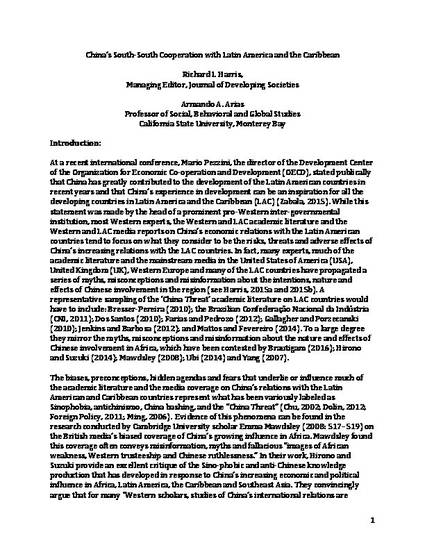
Since the formation of the People’s Republic of China (PRC) in 1949, China’s political leaders have given priority to securing the country’s sovereignty, national unification, and territorial integrity. This has involved pursuing foreign relations that contribute to an international environment that is conducive to the country’s peaceful development as a prosperous socialist society. In pursuing these strategic goals, the Chinese government and state-owned corporations seek to establish economic and political relations with the Latin American and Caribbean (LAC) countries that are based on the principles and practices of South–South cooperation (SSC). This essay focuses on the extent to which China’s relations with these countries contribute to their mutual benefit, promote their common development, and support the formation of a new multipolar world order based on peace, mutuality, equity, environmental sustainability, and international cooperation.
Available at: http://works.bepress.com/richard-harris/12/
